Unilever Vietnam striving to implement sustainable EPR
Although extended producer responsibility (EPR) regulations only took effect a few months ago, Unilever Vietnam has more than three years of implementation experience and has drawn many valuable lessons as a result.
According to a market research report for Vietnam on plastic circularity conducted by the International Finance Corporation and the World Bank, Vietnam has wasted nearly $3 billion by not recycling and eliminating plastic waste from daily life.
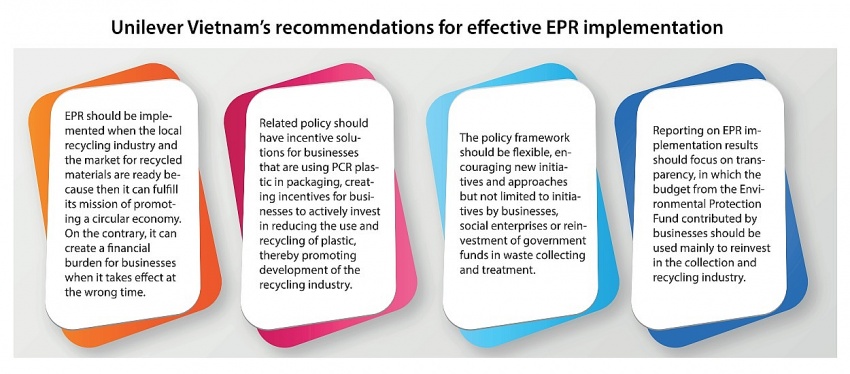 |
A Unilever Vietnam representative pointed out that EPR is an effective environmental policy to promote circular economy in waste management, especially plastic waste. In particular, classifying waste at source, collecting, recycling, and converting it into new products to continue serving consumers’ lives should be replicated and encouraged to follow.
“Policymakers, manufacturers, collectors, and recyclers need to be ready to work together to bring the circular economy of plastics to life. Without close cooperation from all parties, the plastic cycle will be difficult to implement and will not be effective in the long term,” said the representative.
Since January, manufacturers and importers in packaging, batteries and rechargeable batteries, lubricants, and tyres have become the first to carry out recycling responsibilities, and Unilever is no exception.
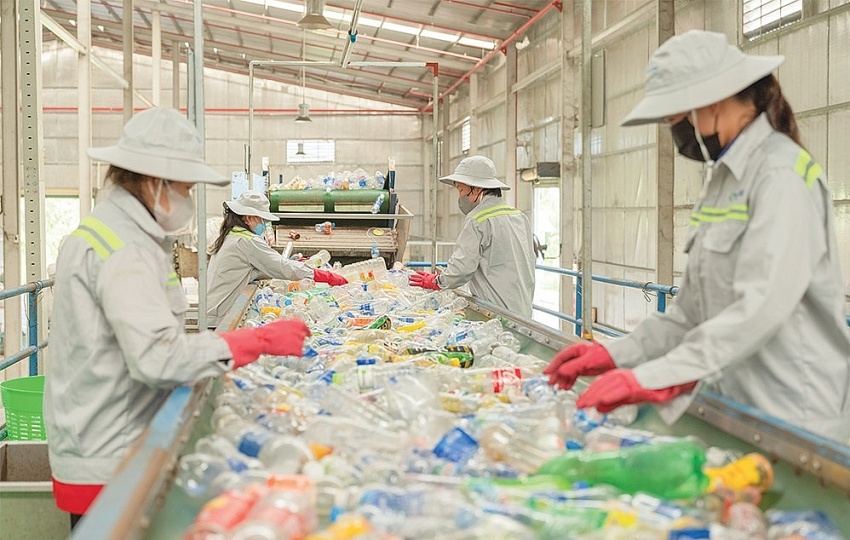 |
However, determined to reduce plastic waste and develop a green economy, the company built an effective plastic management strategy several years ago. The strategy focuses on three main goals: improving packaging materials to increase recyclability, reducing the use of virgin plastic, and collecting and recycling more plastic on the market.
Promoting initiatives to improve packaging materials is Unilever Vietnam’s first effort in the journey to promote circularity for plastic packaging, and is also a necessary stepping stone to prepare for EPR implementation.
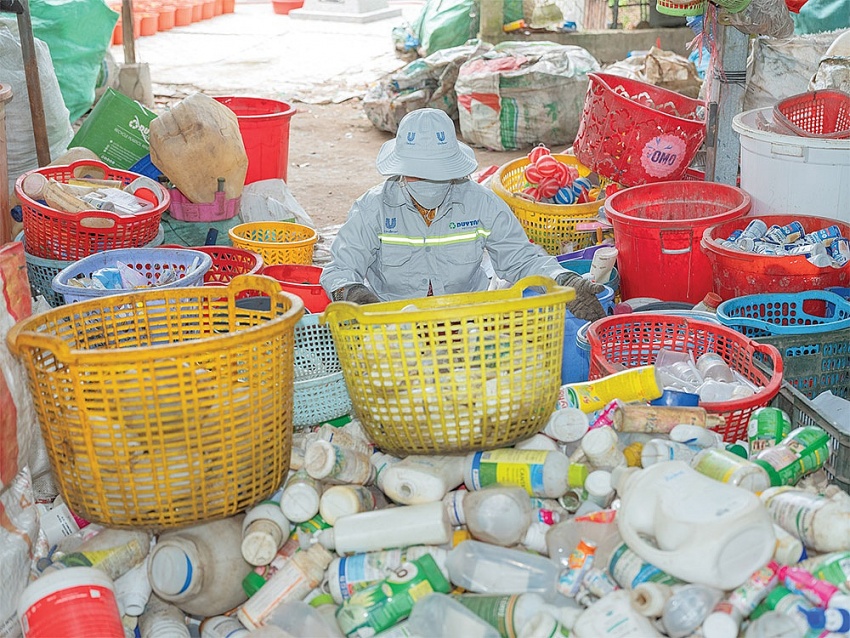 |
The Unilever Vietnam representative shared that the recycling industry in Vietnam is not yet developed, with the plastic recycling rate only reaching 33 per cent. The main reason is that demand for post-consumer resin (PCR) plastic is low, while using virgin plastic is easier and costs less.
“Therefore, storing PCR plastic is a challenge for corporations that apply international standards to products like Unilever, and is also a bottleneck in promoting the circular economy of plastic in this country,” the representative noted.
The company has committed to cutting the amount of virgin plastic in packaging production in half by 2025 and promoting the use of PCR as an effective alternative method.
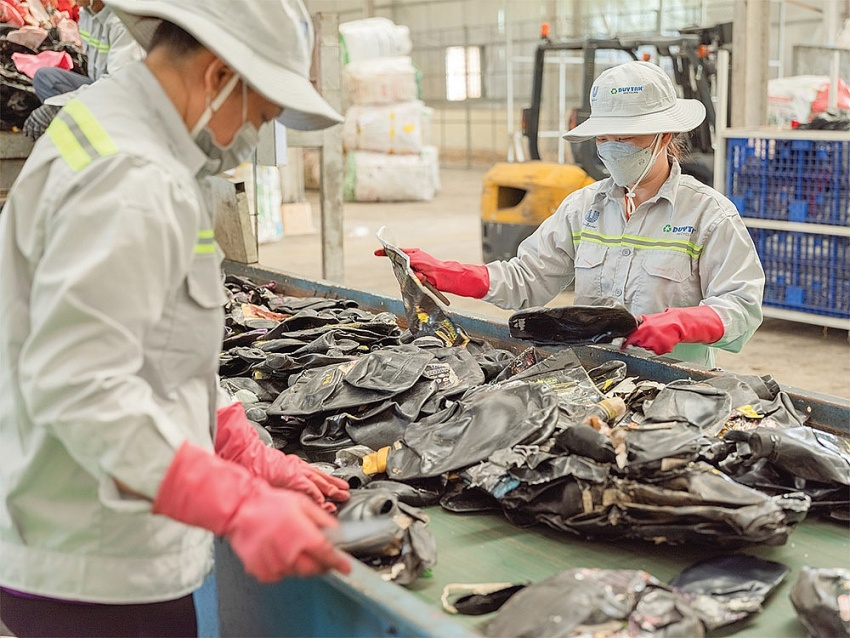 |
| New regulations are set to boost recycling in Vietnam |
To date, Unilever Vietnam has reached 63 per cent of packaging that is recyclable, and at the same time cut the amount of virgin plastic in packaging production by 52 per cent through switching to using PCR plastic.
Packaging of many Unilever Vietnam brands consists of 100 per cent PCR plastic such as Sunlight, and Lux, while some other products also apply PCR plastic in packaging such as Dove, Lifebuoy, Sunsilk, Comfort, and OMO.
Understanding that the problem of plastic waste treatment is not simply a business story, in 2020 the company signed a public-private collaboration with the Ministry of Natural Resources and Environment and partners to implement a circular economy pilot with various plastic waste collection models in the community.
The number of members in the initiative has now reached 28, including private companies, recyclers and collectors, organisations, associations, and local governments such as DuyTan, Viet Cycle, the Women’s Union and Youth Union, and distribution partners.
The company is also focused on communication to raise awareness and change habits about waste classification at source for nearly 12 million people.
With stronger determination in implementing sustainable EPR, Unilever has also signed a cooperation agreement with Vietcycle and DuyTan with the goal of collecting and recycling about 30,000 tonnes of plastic waste from 2023-2027. Previously, Unilever also collected and recycled 25,000 tonnes of plastic waste in 2021-2023.
Manufacturers like Unilever will use these recycled plastic pellets to produce new plastic bottles. Distributors such as retailers will bring products with recyclable plastic packaging to consumers, encouraging them to continue classifying plastic waste after use so that the cycle of plastic continues to be extended.
At the Vietnam Circular Economy Forum 2023 held late last year, chairwoman Nguyen Thi Bich Van also pledged to make efforts to achieve the goal of reducing plastic waste and promoting recycling as part of sustainable EPR implementation.
“While oil is increasingly scarce and prices are increasing, people are throwing away large amounts of plastic, further polluting the environment. The most effective way to solve this problem is to redirect the flow so that plastic can be recirculated and returned to meet people’s needs instead of being thrown away,” Van said.
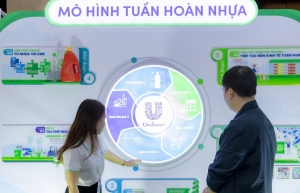 | Unilever Vietnam brings circular economy for plastics to life Unilever Vietnam has continuously implemented a series of programmes to promote green and sustainable development, covering everything from the environment to people and highlighting the need for social responsibility. |
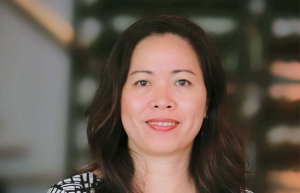 | Unilever Vietnam embracing circular economic benefits With only one-third of plastic waste being recycled, Vietnam is losing nearly 70 per cent of the value of plastic materials, equivalent to nearly $2.2-2.9 billion a year, because of disposal into the environment. |
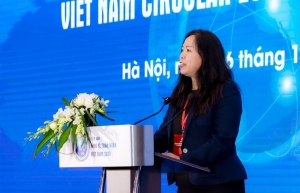 | Unilever consistent in sustainability in Vietnam Unilever’s journey of more than 100 years of global development and nearly 30 years in the Vietnamese market has left impressive achievements in sustainable business, worthy of the position of top global sustainable development enterprise. |
What the stars mean:
★ Poor ★ ★ Promising ★★★ Good ★★★★ Very good ★★★★★ Exceptional
Related Contents
Latest News
More News
- A golden time to shine within ASEAN (February 19, 2026 | 20:22)
- Vietnam’s pivotal year for advancing sustainability (February 19, 2026 | 08:44)
- Strengthening the core role of industry and trade (February 19, 2026 | 08:35)
- Future orientations for healthcare improvements (February 19, 2026 | 08:29)
- Infrastructure orientations suitable for a new chapter (February 19, 2026 | 08:15)
- Innovation breakthroughs that can elevate the nation (February 19, 2026 | 08:08)
- ABB Robotics hosts SOMA Value Provider Conference in Vietnam (February 19, 2026 | 08:00)
- Entire financial sector steps firmly into a new spring (February 17, 2026 | 13:40)
- Digital security fundamental for better and faster decision-making (February 13, 2026 | 10:50)
- Aircraft makers urge out-the-box thinking (February 13, 2026 | 10:39)

 Tag:
Tag:


















 Mobile Version
Mobile Version